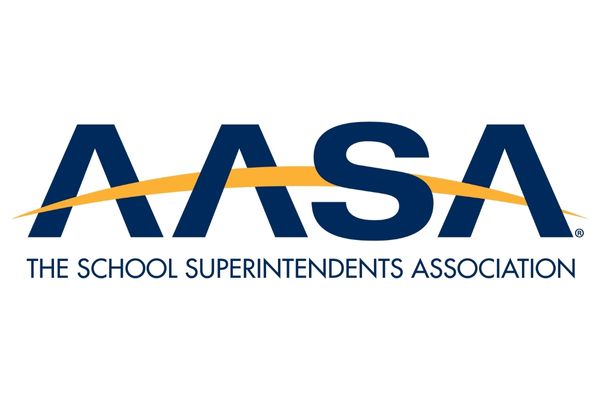AASA Issues Statement in Reaction to President Biden’s American Families Plan Proposal
April 29, 2021
FOR
IMMEDIATE RELEASE
Contact:
James Minichello
703-875-0723
703-774-6953 (cell)
jminichello@aasa.org
Today, Daniel A. Domenech, executive director of AASA, The School Superintendents Association, issued the following response to the American Families Plan.
“AASA applauds this comprehensive investment on behalf of all of our nation’s young learners. Our public K-12 schools rely on and work in coordination with early education and post-secondary institutions, including preschools and community colleges.
“By strengthening the connections to and from our elementary and secondary schools, as well as building the pipeline for our teachers while making it easier and less expensive for schools to feed all kids, we will strengthen our schools, communities and our country’s workforce.”
The specific details of the plan are as follows:- $200 billion to create a national partnership with states to offer free, high-quality, accessible, and inclusive preschool to all three-and four-year-old children. The partnership will prioritize high-need areas and enable communities and families to choose the settings that work best for them. The President’s plan will also ensure that all publicly funded preschools are high-quality, with low student-to-teacher ratios, high-quality and developmentally appropriate curriculum, and supportive classroom environments that are inclusive for all students. All employees in participating pre-K programs and Head Start will earn at least $15 per hour, and those with comparable qualifications will receive compensation commensurate with that of kindergarten teachers.
- $1.6 billion to provide educators with opportunities to obtain additional certifications in high-demand areas like special education, bilingual education, and certifications that improve teacher performance. This funding will support more than 100,000 educators, with priority for public school teachers with at least two years’ experience at schools with a significant portion of low-income students or significant teacher shortages.
- $2 billion for teacher-leadership programs.
- Double TEACH Act grants from $4,000 to $8,000 per year while earning their degree, strengthening the program, and expanding it to early childhood educators.
- $2.8 billion fund in Grow Your Own programs and year-long, paid teacher residency programs.
- $400 million for teacher preparation programs at HBCUs, TCUs, and MSIs.
- $900 million to expand the pipeline of special education teachers.
- $25 billion to expand summer EBT to all eligible children nationwide.
- Lower CEP threshold for elementary schools to 25% of students participating in SNAP.
- $25 billion to expand summer EBT and make permanent.
- $17 billion to expand free meals for children in the highest poverty districts (those with at least 40 percent of students participating in SNAP) by reimbursing a higher percentage of meals at the free reimbursement rate through CEP. Additionally, the plan will expand free meals for children in elementary schools by reimbursing an even higher percentage of meals at the free reimbursement through CEP and lowering the threshold for CEP eligibility for elementary schools to 25 percent of students participating in SNAP.
- $109 billion to offer two years of free community college to all Americans, including DREAMers.
- A $62 billion grant program to invest in completion and retention activities at colleges and universities that serve high numbers of low-income students, particularly community colleges.
- Provide two years of subsidized tuition and expand programs in high-demand fields at HBCUs, TCUs, and MSI.
- $225 billion for a national paid leave program will provide workers up to $4,000 a month, with a minimum of two-thirds of average weekly wages replaced, rising to 80 percent for the lowest wage workers.
###
For specific questions, please contact Sasha Pudelski, AASA advocacy director, at spudelski@aasa.org.
###
About AASA
AASA,
The School Superintendents Association, founded in 1865, is the professional organization for more
than 13,000 educational leaders in the United States and throughout the world.
AASA’s mission is to support and develop effective school system leaders who
are dedicated to equitable access for all students to the highest quality
public education. For more information, visit www.aasa.org.



